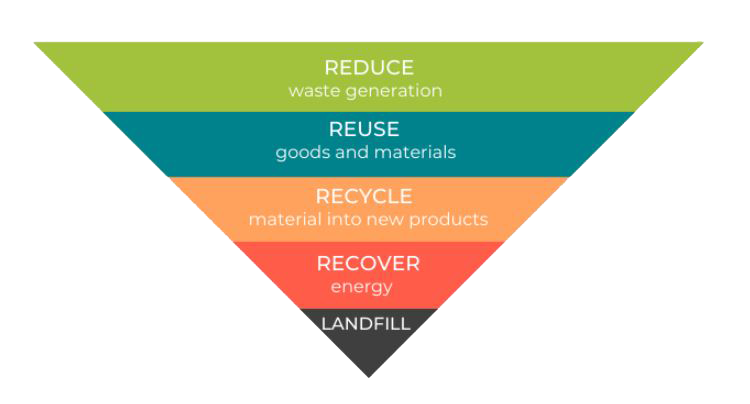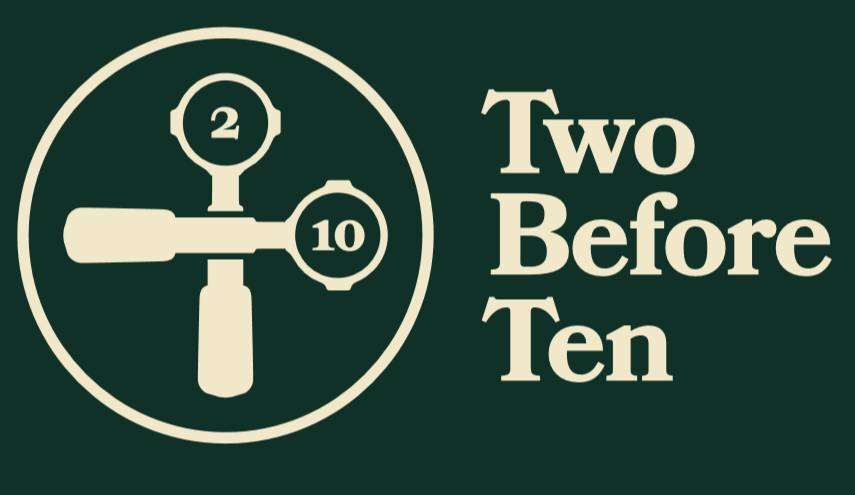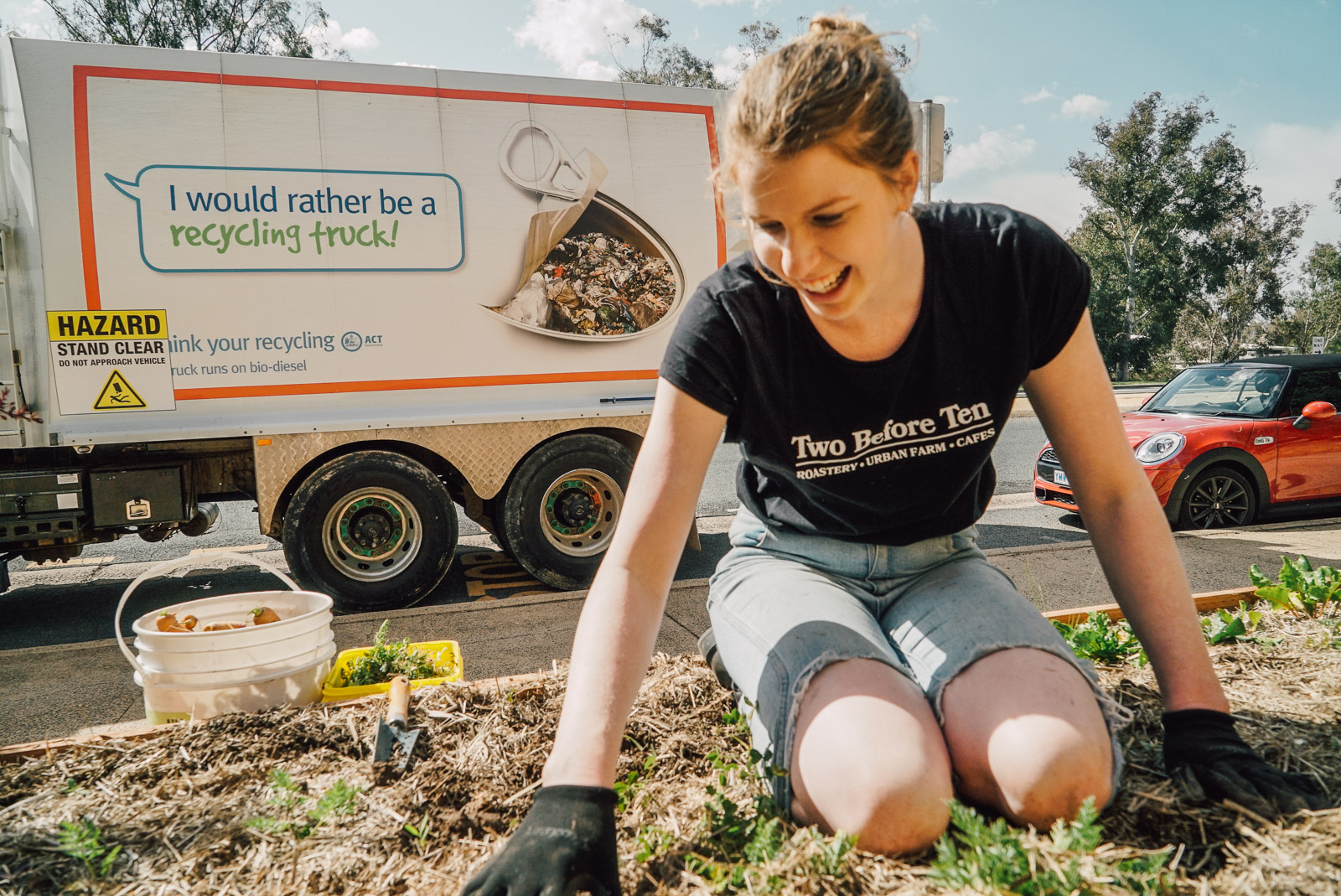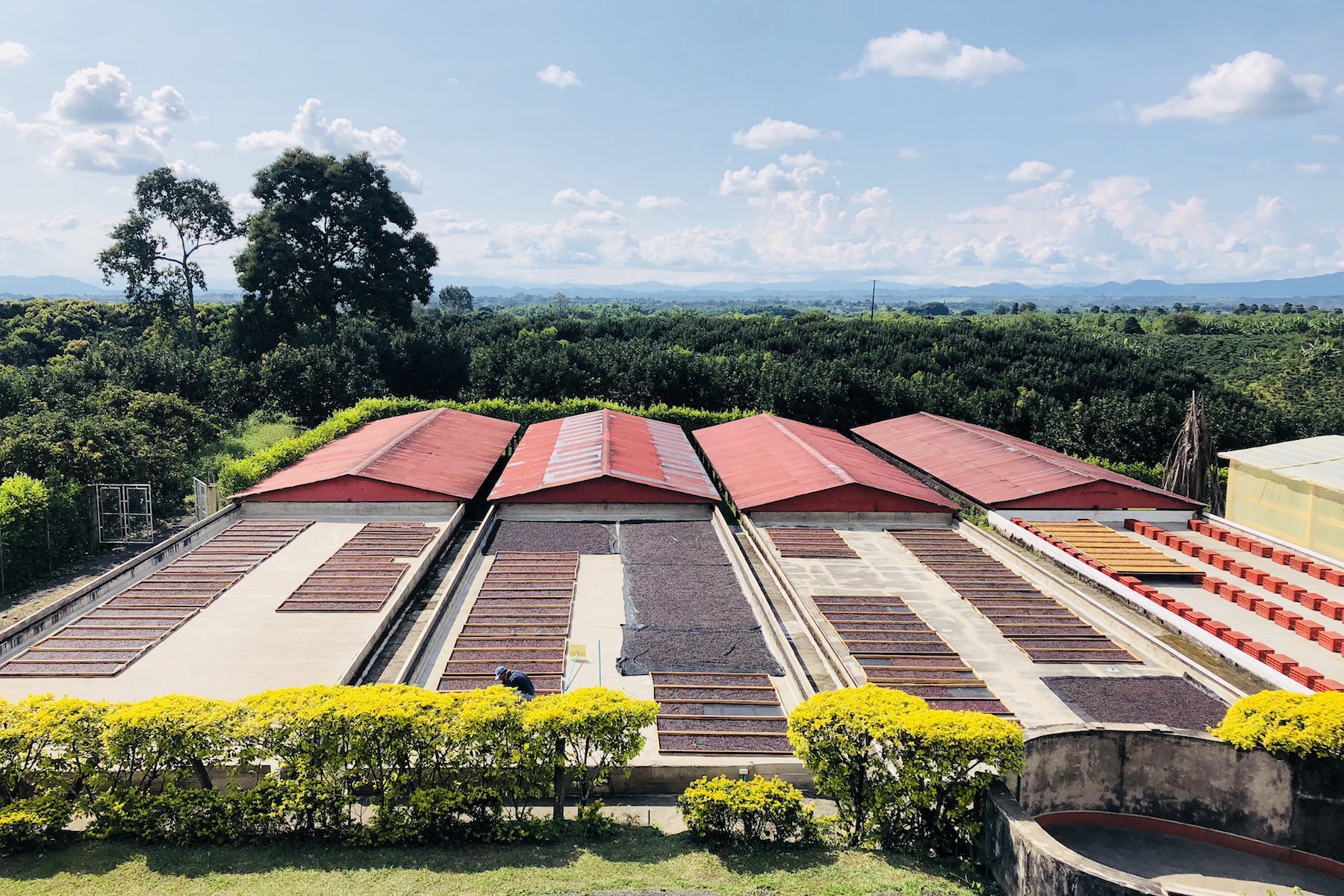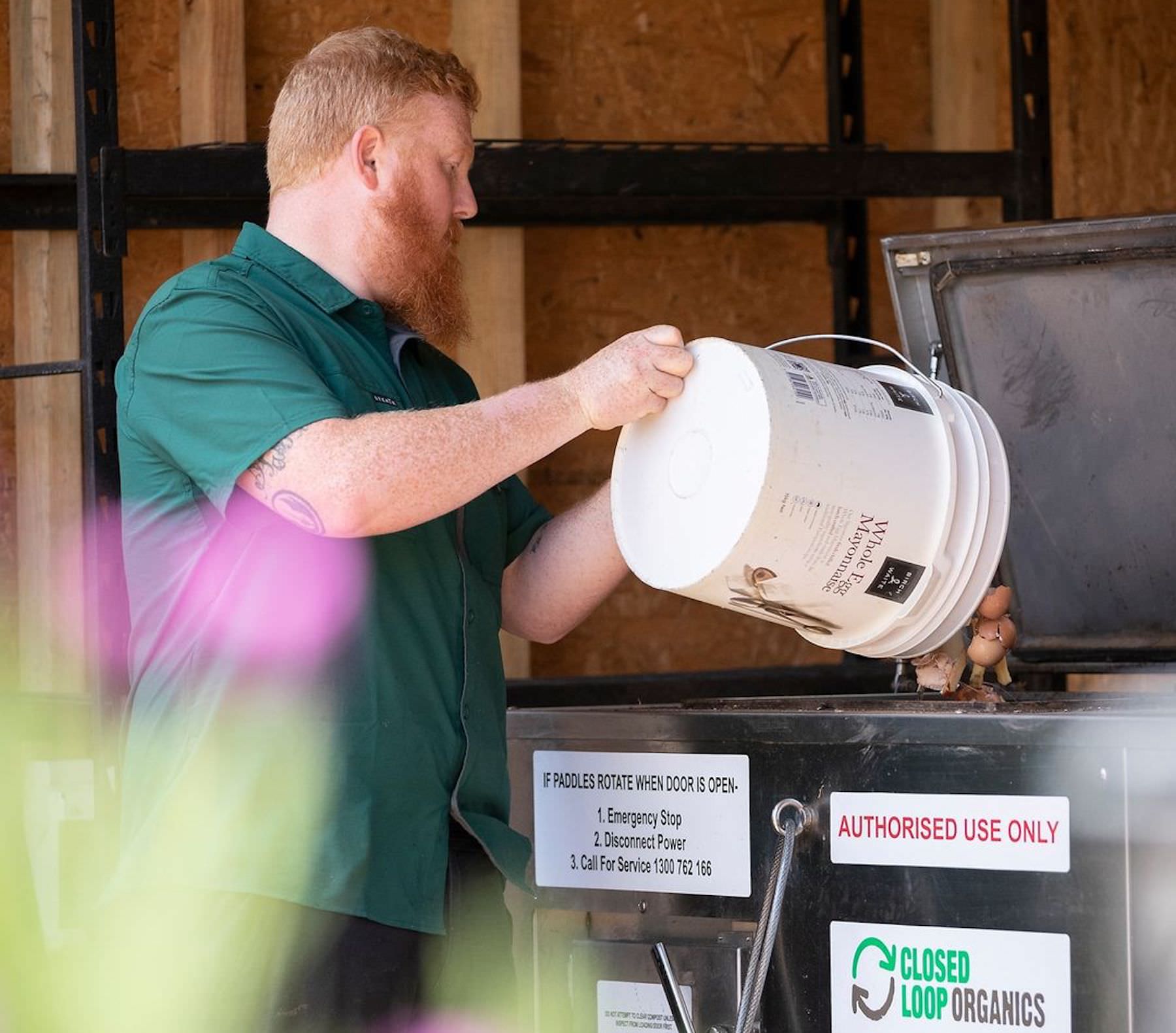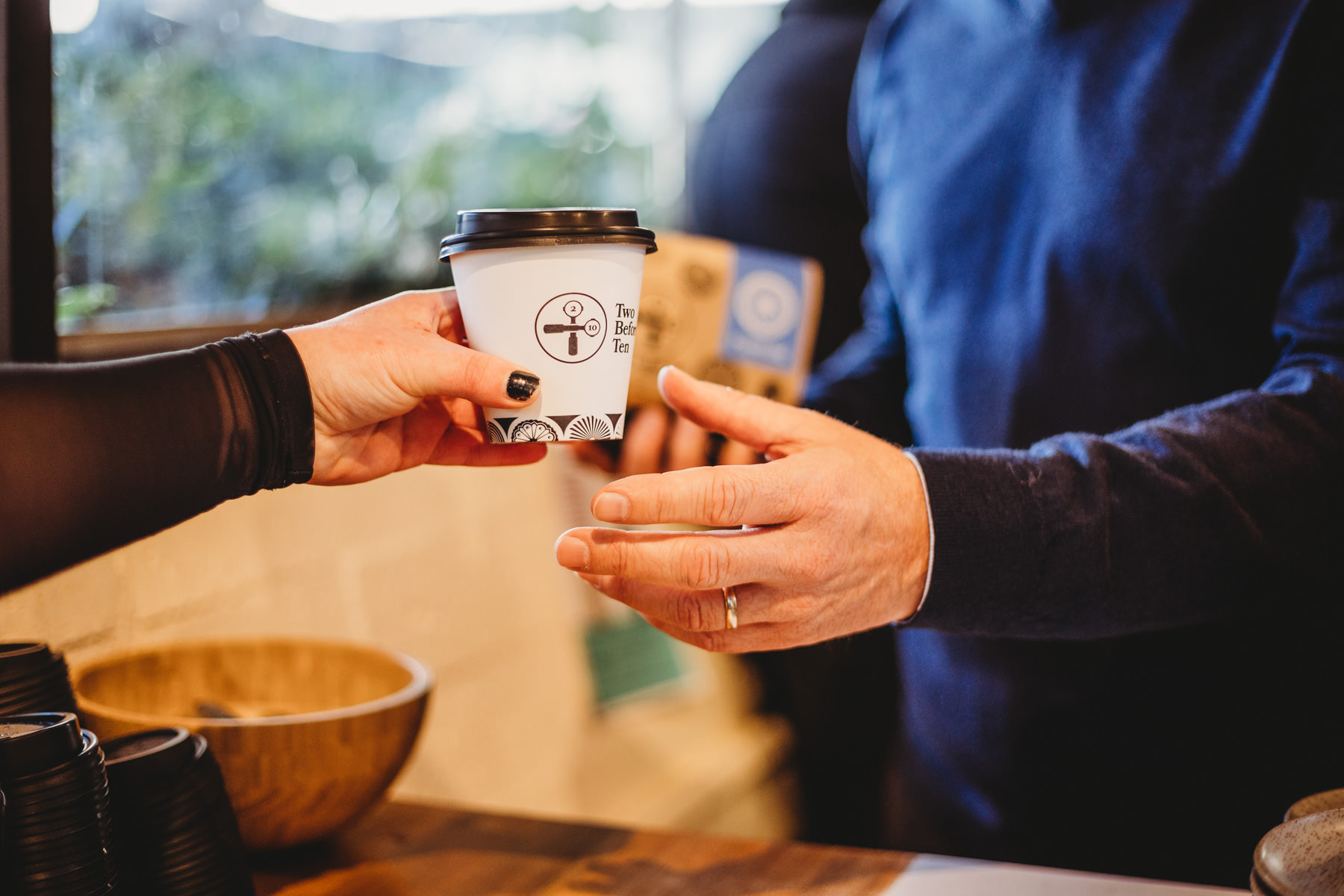An Easy Guide to Recycling in Canberra
What exactly can be recycled in the ACT yellow bins? How should you dispose of used batteries safely? And is there a way to give old fabrics a second life? Recycling programs differ between states in Australia and it can be confusing sorting out waste correctly. So to simplify things, here's a comprehensive guide to recycling in Canberra.
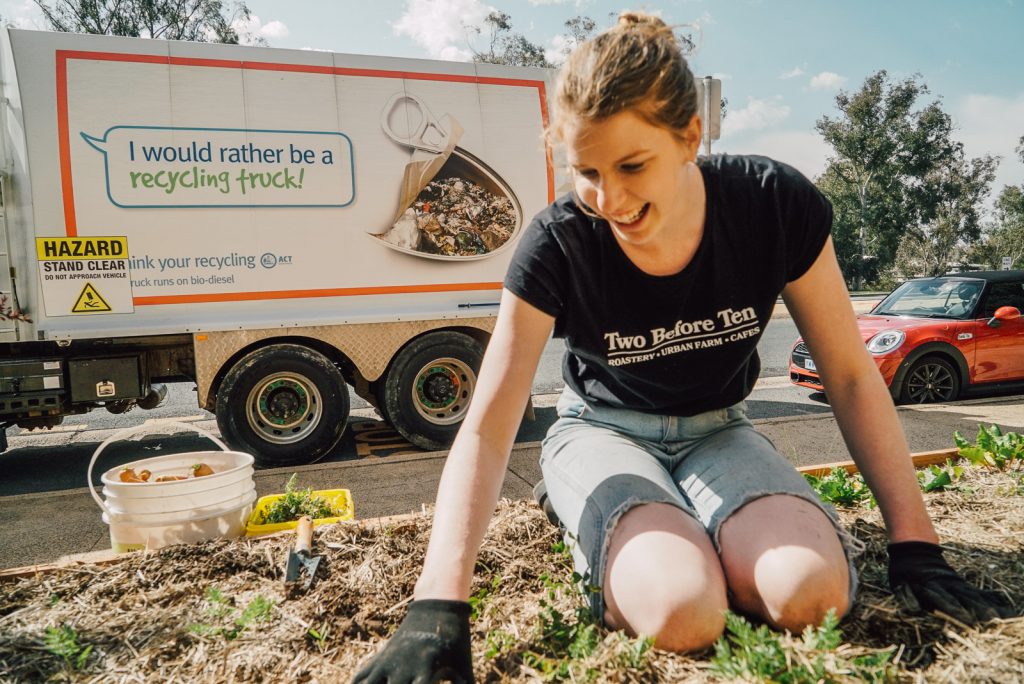
What can I put in the yellow recycling collection bin?
The mixed recycling bin has 4 distinct categories of recyclable items:
- Hard plastic bottles and containers
- Steel & aluminium cans
- Glass bottles and jars
- Clean paper and cardboard
All of these materials fall under the category of "household packaging" and can be sorted and recycled at the ACT Materials Recovery Facility in Hume. From there, around 90-95% of the processed materials are sold to the domestic market. But before you chuck it all in, there's a few more guidelines that need to be followed.
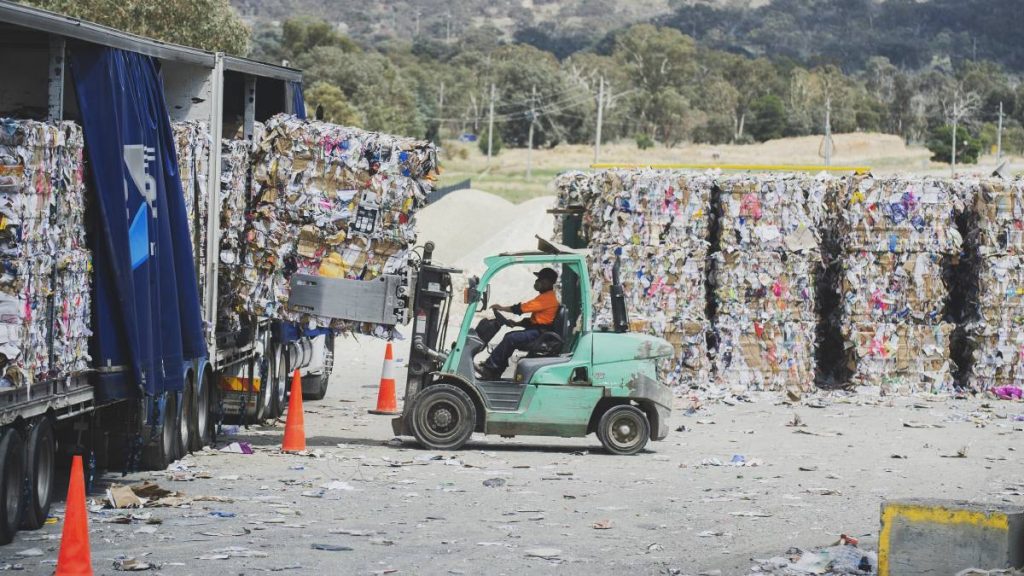
Remove food residue
You don't need to scrub to perfection, but give those food containers and cans a rinse or wipe before recycling them. Too many food scraps can contaminate the collection, costing time and money as processors manually remove them. Worst case scenario - if the food mixes through everything the whole lot gets sent to landfill. Approximately 12% of material received at the MRF is considered contaminated. For paper and cardboard, food spoiled items need to go into your compost or landfill bin if the food can't be removed. Waxed paper, paper towel, napkins, tissues or heavily oil-and-grease-stained cardboard cannot be recycled.
Nothing smaller than a credit card
Yes, this includes bottle caps! Take those off before throwing the bottle in the recycle and keep them separate. If it pains you to send them to landfill, you can collect the clean lids and other small items that can't be recycled through the government bins (see here for more detail) and drop them off to Lids 4 Kids. This not-for-profit organisation diverts these materials from landfill and repurposes them into sustainable recycled plastic projects like park benches, roof tiles and mobility aids for children. There are collection points in Cook, Fyshwick and at Two Before Ten Aranda.
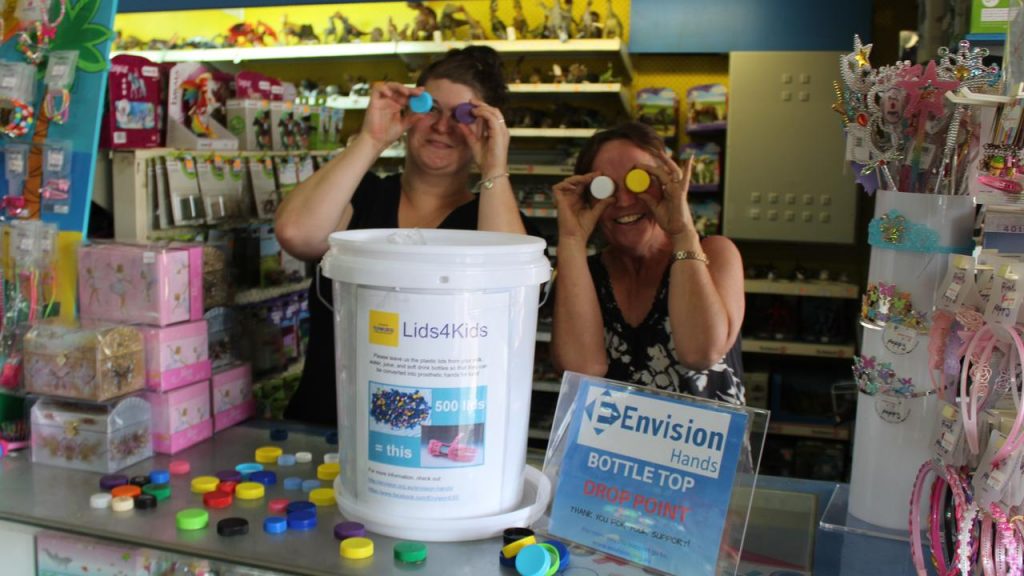
No hazardous items
To avoid injuring workers and damaging machinery, dangerous materials like broken glass should be kept out of the recycling bin. Items like strapping line, hose, netting, wires, building materials, broken glass, chemicals and other hazardous materials should be disposed of in the red landfill bins or taken to an appropriate waste treatment centre.
Keep it loose
Plastic bags in all forms must be kept out of the yellow recycling bin. That means any recyclable items you put into the bin shouldn't be bagged or boxed. Keep it simple and tip them in loose!
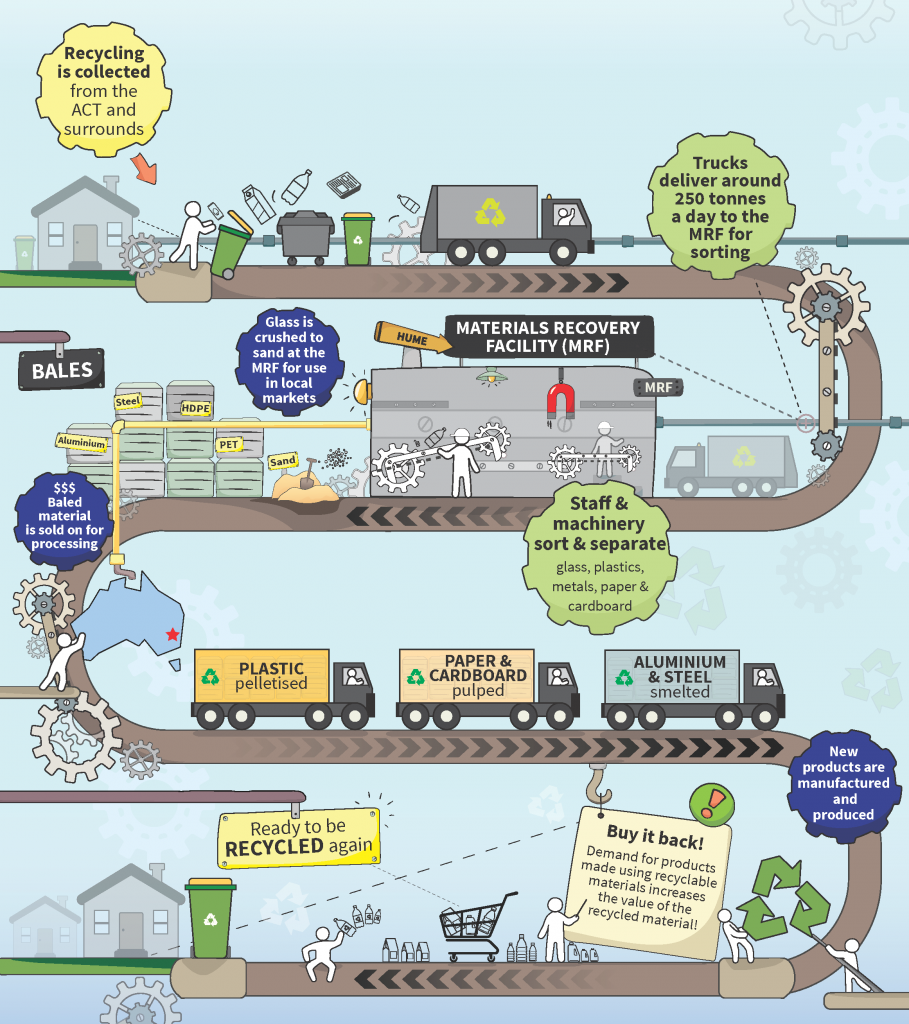
Only home packaging hard plastics allowed
Unfortunately, not all hard plastics found in the home are recyclable. Single use bottles and containers have been made with types of plastic that are compatible with our recycling systems. But other hard plastics like old toys, kitchen utensils and home décor aren't always appropriate for recycling. The best option for these is to reduce consumption through careful buying choices, and reuse items for as long as possible. If it's not being used anymore but still in good shape, try to find a new home for it in your local Buy Nothing groups or an online marketplace. Otherwise they can usually be dropped off at The Green Shed Resource Management Centres in Mitchell or Mugga Lane.
If you're still confused about which hard plastics are ok, a good question to ask is "did I buy a product in this?"
No soft plastics in the yellow bin
Soft plastics don't belong in the yellow recycling bin. Plastic bags, bin bags, bubble wrap, ziplocks, cling wrap and other soft plastic packaging can be collected separately and dropped off at a Redcycle bin found at most Coles and Woolworths supermarkets. Eventually these are turned into things like road aggregate, fence posts and even shopping trolleys.
Here's a simple test to determine soft vs hard plastic: lightly scrunch your plastic item in your hand. If it bounces back to its original shape, it's hard plastic. If it scrunches into a ball, it's soft plastic.
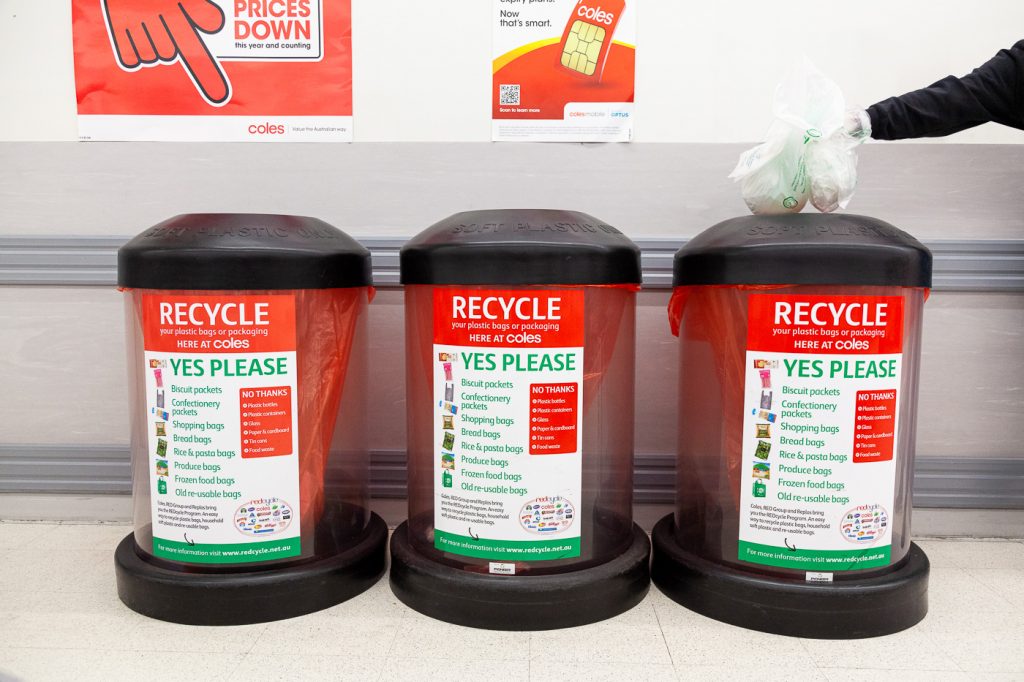
Canberra Recycling Bin FAQ
Do labels need to be removed from cans, jars and bottles?
No, you can leave those on.
Can a cardboard box with a plastic window be recycled?
It shouldn't be an issue. While the plastic window is not recyclable, the processing plant is usually able to remove it. Not convinced? Check for the recycle symbol on the box. Numbers 1, 2, 3 or 5 can be dropped into your yellow recycling. If you've got the time you can separate the plastic from the cardboard first, but it's not required.
Do I need to remove staples from paper before recycling?
Not necessary, you can leave staples in or you can help out the recycling workers and take them out first.
Can I throw a book in the recycle bin?
If it's still in good condition, books can be donated and reused through Lifeline, The Green Shed, donation centres, op shops or your local street library. Otherwise they can be dropped off for free at a Recycling Drop Off Centre. The last option is to remove the spines and plastic and place in the mixed recycling bin at home.
How about glossy magazines and booklets?
Glossy magazines, brochures, and pamphlets are ok to go into the recycling bin. Receipts, absorbable papers and waxed papers cannot be recycled, neither can photos or negatives.
Is shredded paper ok?
No, it's too small. Any paper must be larger than a credit card to go into the recycle bin. But they can be taken to the paper and cardboard cages at the Recycling Drop Off Centres. Shredded paper is also an excellent compost addition.
Can envelopes be recycled?
Yes, even for those with a plastic window face. Padded paper envelopes (where the padding is made from paper pulp) can be placed in the recycling bin. Padded envelopes that are lined with bubble wrap can be reused or placed in the rubbish bin. Post Packs are made from soft plastic and can be recycled at REDcycle drop off points in most Coles and Woolworths supermarkets.
Can wrapping paper and cards go in?
Yes, gift wrapping and greeting cards can be recycled in the metal bin. The exceptions are heavy-wax coated or metallic cards and paper - those go in the regular rubbish.
Can bioplastics be recycled?
No, bioplastics and compostable packaging are designed to be broken down into compost - with some greenwashing exceptions like "degradable" or bioplastics combined with regular plastic. Two Before Ten have collection bins at each venue where you can drop off your Two Before Ten branded compostable coffee cups and coffee bags. These get processed in our very own commercial composter at the Aranda Urban Farm and added to our gardens as compost.
Do cardboard boxes need to be flattened?
It's not a deal-breaker, but highly advised. This saves space in the bin, in the collection truck and helps with the sorting process at the recycle plant.
Can I recycle aerosol cans?
Aerosol cans from fly sprays, deodorants, hair sprays and cooking oils can go in your recycling bin. Gas burner aerosols used for camping stoves and barbeques (including butane gas cartridges and cans) are hazardous and cannot go in any household bins. These must be dropped off at the Resource Management Centres for safe disposal.
Are drinking glasses ok to recycle?
While a glass jam jar can go into the recycle bin, a drinking glass cannot. That's because it's processed differently and was not designed to be recycled alongside household packaging.
Do these rules apply in other states?
Not necessarily! Every state has slightly different rules and it's a good idea to research what's acceptable if moving or visiting.
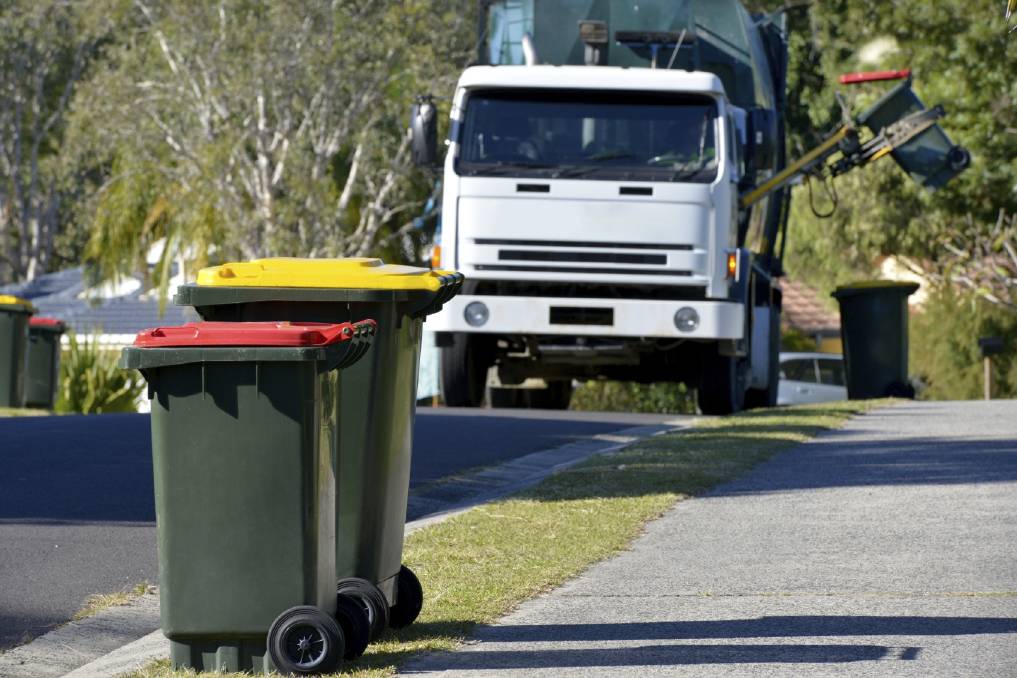
How to recycle…
Soft plastics
Redcycle collection bins at Woolworths and Coles collect all kinds of soft plastic waste and turn them into useful products. Soft plastics can not go into your home recycle bins and must be collected separately.
Fabrics
Clothing, blankets and fabrics in good condition are best sold or donated for re-use through local buy-nothing groups, op shops, or online marketplaces. Fabrics in any condition can be donated to Koomarri Cut Cloth through collection bins at Mitchell, Mugga Lane or Lathlain St, Belconnen. They can also be dropped to the Green Shed, to the Garment Recycling Collection Box at H&M stores (any brand fabric accepted), to Upparel or donated to Wildcare Queenbeyan for use in animal welfare. Fabrics and clothing are some of the most common contributions to landfill, which can easily be avoided with so many recycle options. See this list for more information on drop off locations.
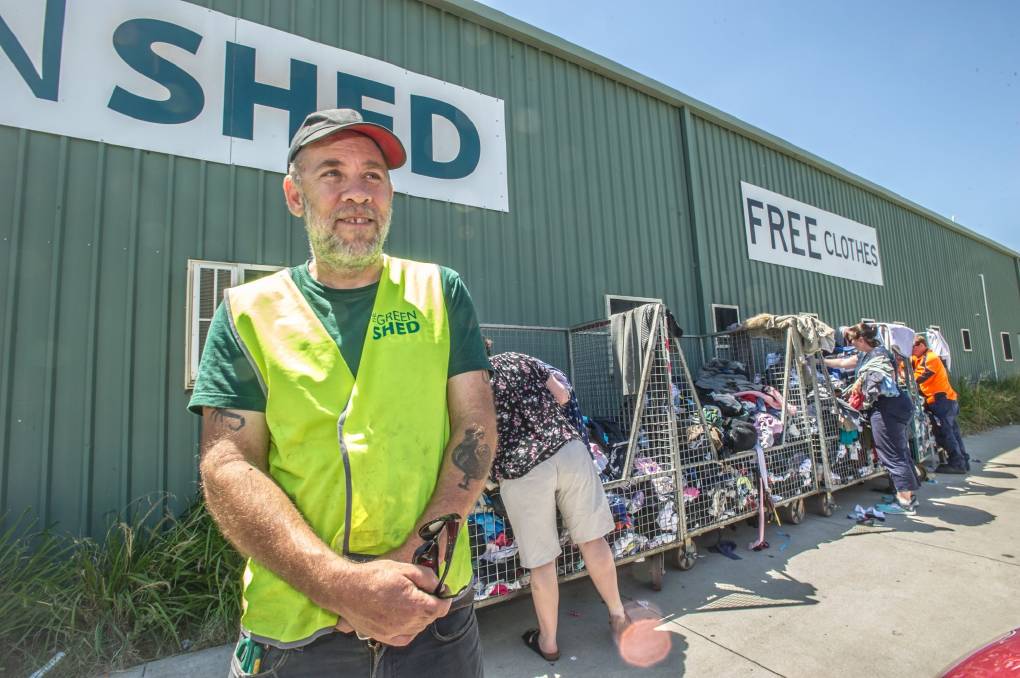
Household items
Items found in the home that are no longer needed can't be recycled through the yellow recycle bin unless they are considered to be packaging. Anything in good condition like furniture, ceramics, cooking equipment, decorations and electronics can be donated to op shops or dropped off at a Resource Management Centre. For more specific information on a particular item, search Recyclopaedia here.
Bottle caps
Lids4Kids is the only organisation who collect bottle lids and other waste smaller than a credit card in the ACT. You can find their drop off points here.
Batteries
It's not safe to dispose of batteries in your home recycle bins nor the landfill bins. Both rechargeable and non-rechargeable batteries contain highly-valuable recoverable material that can be extracted and reused when recycled through specialised battery recycling programs. You can find free drop off points for AA, AAA, C, D and 9V batteries all over Canberra, including Aldi supermarkets, Woolworths supermarkets, Officeworks, Bunnings Warehouse, Yarralumla IGA, Cooleman Court and IKEA Canberra. Household quantities of 10 items or less can also be dropped off at the Mugga Lane and Mitchell Resource Management Centres. Large batteries can be recycled at any Battery World Store (find them in Phillip and Belconnen).
Garden waste
Those with a home green bin (lime-green lid) can get their garden waste collected fortnightly for free. Garden organics like small branches, leaves, bamboo, weeds, wood chips, grass clippings and flowers are valuable materials for composting. ACT city services turn these into a variety of mulch and compost products. If dumped in the general rubbish bin, organic matter in landfill releases a harmful greenhouse gas, methane, into the environment.
If you don't have a green bin or home compost, you can drop garden organics off for free to the Mugga Lane Resource Management Centre (Corkhill Bros) or Parkwood Road (in Belconnen).
Food waste
If you're one of the lucky residents in Belconnen, Cook, Bruce or Macquarie who are part of the FOGO (Food Organics and Garden Organics) collection pilot, you can chuck your food scraps straight in to the green bin alongside garden waste. If the pilot goes well, the program will hopefully be rolled out city-wide.
Until then, food waste is best sent to a home compost bin or worm farm. These are fairly simple to set up and reward you with nutrient rich garden compost, healthier plants and a greatly reduced waste-footprint. If home composting is not possible, check out the Share Waste website to find a compost drop off point near you.
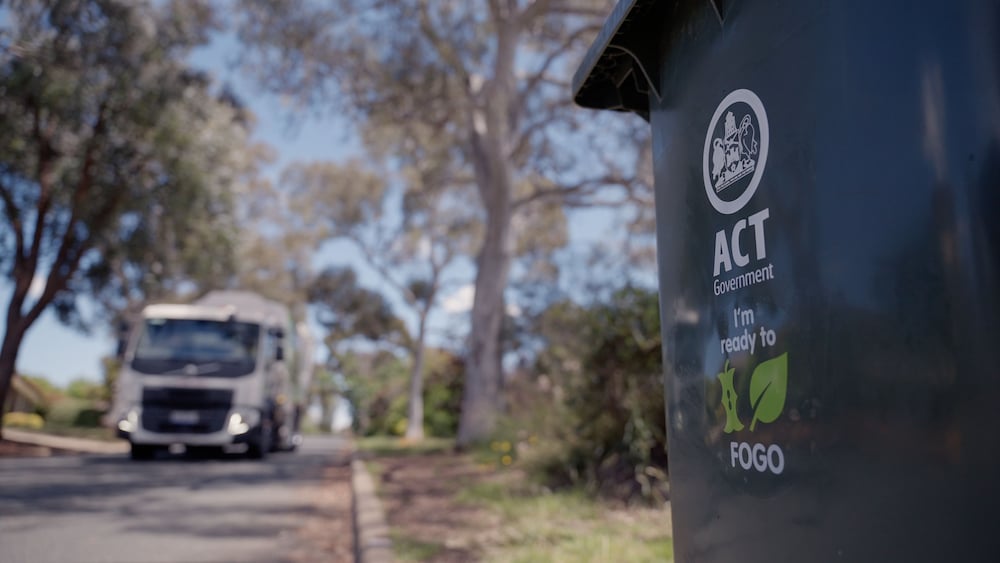
Bioplastics / compostable packaging (like takeaway cups and coffee bags)
Bioplastics are a controversial new addition to the worldwide packaging market. Biodegradable plastics (not to be confused with "degradable plastic") are made from plant or other biological material instead of petroleum. As they are designed to biodegrade, they cannot be recycled, only composted. Be mindful that packaging that is not 100% biodegradable and mixed with regular plastic is greenwashing and worse than regular plastic. These mixed materials can not be composted nor recycled, only thrown into landfill. Key words to look out for are "Fully compostable", "100% biodegradable" and similar.
In a home composting system they should break down eventually, but may take several years to do so. A better alternative is to send them through a commercial compost system that uses high temperatures to break them down into crumbly soil amendments in a matter of hours.
At Two Before Ten all our branded coffee cups, lids, drink cups, coffee bags and takeaway packaging are fully compostable. But considering the limited number of places to drop these items off for composting, we decided it simply wasn't enough to just switch our packaging. That's why our Aranda venue has added a commercial composter to the Aranda Urban Farm. Collection bins are available at every Two Before Ten café for you to drop off your TBT coffee cups and packaging, which we collect and bring back to the Urban Farm to process into compost and lay directly onto our garden beds. Buying an industrial composter was not a cheap affair, but we took the plunge because it matters.
Biopak also have some collection bins dotted around the ACT to discard your biodegradable coffee cups and lids. See here for a map.
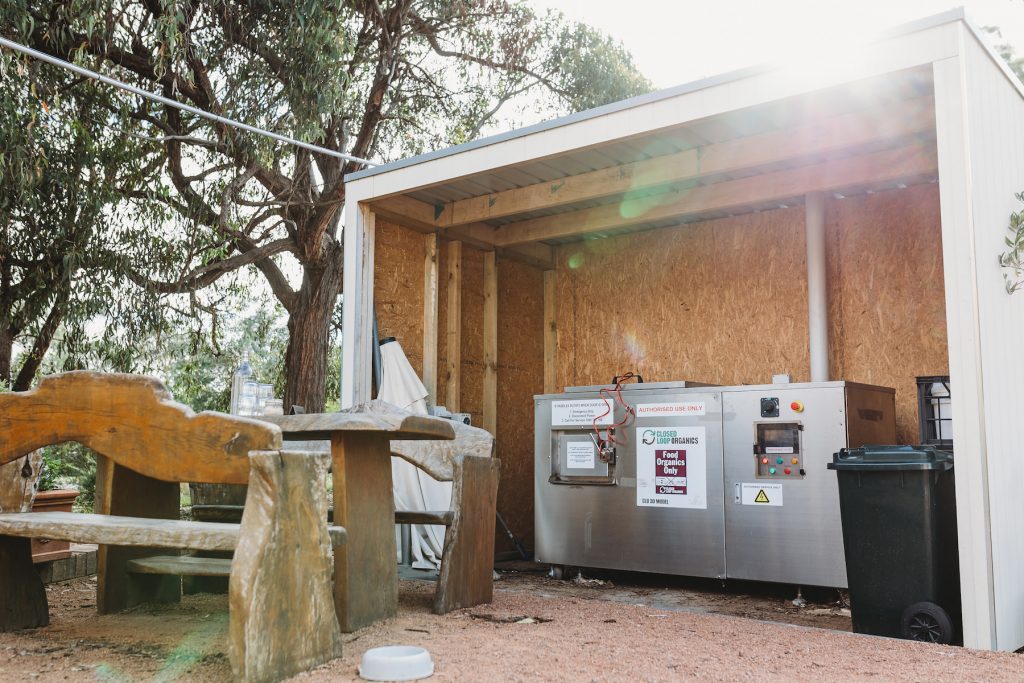
Reduce, reuse and recycle
Modern technology has provided us with a myriad of ways to recycle a huge variety of materials. Yet we shouldn't forget to first reduce and reuse before turning to recycling. Remembering to bring a keep cup to the café each day and reusing shopping bags as many times as possible have a far greater positive impact on our environment. Considering whether we really need to buy that item and avoiding impulse shopping are all important steps in a long journey to reducing our waste footprint.
The least we can do to minimise our mark on the planet, is take a little time to consider and carefully sort recyclables to the best of our ability.
